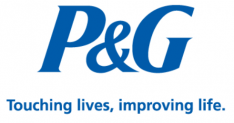P&G and Unilever defend strategy of marketing corporate name in addition to brands

 Marketing the name of a parent company, in addition to those of its public-facing brands, helps build trust with consumers and creates loyalty across its product portfolio, two of the world’s largest FMCG firms have claimed.
Marketing the name of a parent company, in addition to those of its public-facing brands, helps build trust with consumers and creates loyalty across its product portfolio, two of the world’s largest FMCG firms have claimed.
Unilever and Procter & Gamble defended the strategy of promoting their corporate identity after recent criticism from Network Ten’s executive general manager Russel Howcroft, who told a panel discussion that companies such as Unilever and Procter & Gamble should let their brands do the talking and keep the corporate name in the background.
“I don’t buy a Unilever and yet these days they do like to brand their advertising,” Howcroft said. “It’s like the parent wants to own the child and yet I am buying the children, not the parent.”
“There is this desire as a parent to claim ownership over your successful children, and as we all know, it’s much better if you’re a great parent to stay in the background and let your kids fly with their own brand and their own voice.”


OMG – these guys control some of the largest marketing budgets in the world.
Except for premium brands, P&G.
They do this because most “brands” are vapid constructs. They are very disposable and do not really represent much at all.
New product development teams come up with many brand wannabes which last little more than a season (just trial products, really). P&G and Unilever on the label or ad does actually represent something and signifies some level of quality assurance.
Better to ensure that the master-brand is kept in people’s minds, though this type of investment, rather than relying (or having to fund) a multitude of stand-alone “brands” that would need substantially greater individual investment than can be afforded if each were to successfully lodge a trusted brand-promise in consumers’ minds. (The value proposition of all the “Brand Power” ads??)
Media outlets don’t like this, because it stops companies having to spend so much with them.
Commercially, it also allows master-brands to do co-marketing deals with channel partners (and makes them easier to monitor).
Time, even mere seconds, any time taken to sell a parent company, is time taken away from the brand being advertised.
It gives viewers (or listeners or readers) more than one message to remember which necessarily reduces effectiveness.
Bad global marketers, bad.
Yes consumers want to know more about the companies that make the products they buy, because they hate big corporates and don’t for one minute trust them. Its not because they want to send you a fan letter.
I’m with Russel. Advertising the parent company is an awful strategy and a terrible waste of marketing investment.
And these ads remind me of the ‘Veridian Dynamics’ ads (google them) on the TV sitcom Better Off Ted, where no one working at the generic large global company knew what they actually produced.
I won’t like to buy a body wash like “Lux” from the company that also manufactures a toilet cleaner like Domestos…. PG & UL both have brands which are very diverse categories & have differentiated benefits. A branded house strategy works great for Nestle or Loreal which has brands in similar categories.